Below are interesting facts about Sulfur. Why Sulfur? Because it’s part of the world we live in and we like writing about tech stuff or even the elements of the world. Read below for a quick summary or the full article. Including sulfur burps and more.
The Too Long Didn’t Read version of this post can be found here:
- Sulfur is the10th most common chemical element.
- Sulfur is the US spelling while Sulphur is the UK spelling.
- Was well known in China since 600 BC.
- Pale yellow, non-metal, bad conductor of heat and electricity.
- Emits blue flames while burning.
- Antoine Lavoisier concluded Sulfur to be an element.
- the melting point of Sulfur is about 115.21-degrees Celsius or 239.38-degree Fahrenheit.
- Is not toxic.
- Sulfur was mentioned in the bible.
- Not a rare element, can be found in many places around the world.
- The noticeable rotten egg smell is from Sulfur.
- Sulfur is not present directly in the human body rather in certain types of metals that do.
- The word Sulfur came from the word Sulphur.
- Widely used in commercial and industrial factories.
- Sulfur is in part responsible for acid rain near factories.
- Using sulfur dioxide for fumigating their homes.
- It was used as traditional Chinese medicine.
- The element can be found inside the formation of giant stars as well.
- Sulfur also being found on meteoroids that landed on earth.
- Sulfur is found on one of Jupiter’s moons.
- China is the largest Sulfur manufacturer in the world.
- Sicily was the largest export of Sulfur with 2000 tonnes.
- During the industrial revolution Sulfur demand doubled.
- Can be found in nature.
- Sulfur is mind in volcanos.
More detailed Sulfur Facts below.
You might think that what can be so interesting about a chemical element. Well, there are a lot of interesting things about it. For example that sulfur is a chemical element with the atomic number 16 and the symbol S.
1. Availability of Sulfur in Nature
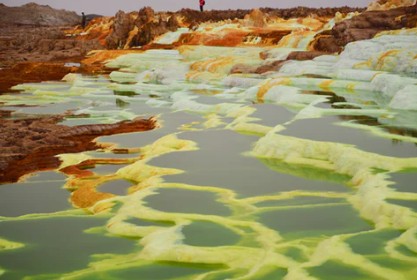
Sulfur is one of the most abundant elements in the entire universe. In terms of mass, it is the 10th most common chemical element in the universe. And, in the earth, it is the 5th most common element by mass.
To be precise, it comprises about 3% of our planet’s mass. Interestingly, if you compare it to the mass of our only satellite Moon, you can actually make 2 extra moons with the Sulfur we have here on Earth.
2. Sulfur or Sulphur
Ok, chances are you have seen both the word ‘Sulfur’ and ‘Sulphur’ to be used in the spelling of this element. But which one is correct? Or why are there 2 different spelling of the same substance?
The short answer is that the spelling is ‘Sulphur’ in the UK and most Commonwealth countries around the world.
However, in the US, the spelling is ‘Sulfur’. And, according to IUPAC (International Union of Pure and Applied Chemistry), ‘Sulfur’ is the correct and official spelling.
3. Sulfur in Ancient Times
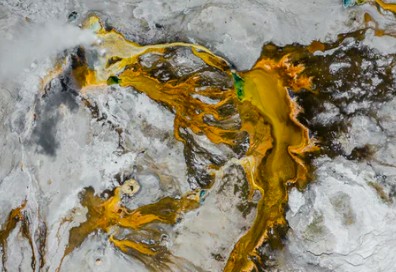
People have known ‘Sulfur’ since the antiquity. It is known that Sulfur was used to treat granular eyelids as ointments in Egypt.
It was also used in Greece for various things like bleaching cloth, fumigation, and medicinal necessities.
Even, Sulfur was well known in China since 600 BC. There are records of using Sulfur since ancient times in India as well. Gradually, the use of Sulfur has increased all over the world.
4. Properties of Sulfur
Here are some of the main properties of Sulfur.
- It is pale yellow in color in its native form
- This is a non-metal
- In its native form, it doesn’t have any odor or taste
- It is insoluble in water
- At room temperature, it is crystalline solid
- It is a bad conductor of electricity and heat
5. If you Burn Sulfur

Even though natural Sulfur is yellowish in color, it emits a blue flame while burning. It is because it reacts with the Oxygen present in the air and forms Sulfur dioxide. Interestingly, when Sulfur burns, it melts to a unique blood-red color liquid. Very cool.
6. Antoine Lavoisier and Sulfur
Antoine Lavoisier was a French chemist and biologist. He is regarded as one of the finest chemists the world has ever seen.
Before 1777, the scientific community all around the world would believe that sulfur was a compound.
However, it was Antoine Lavoisier, who convinced the other scientists that Sulfur is not a compound rather it is an element.
7. The Melting and Boiling Point of Sulfur
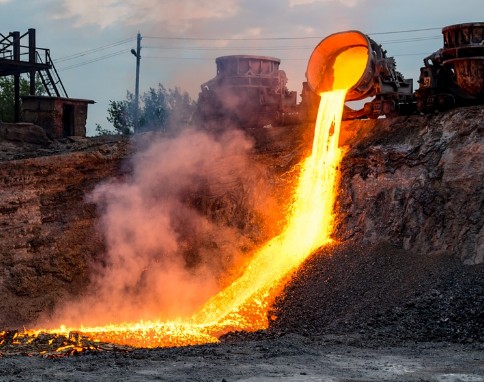
The melting point is the temperature at which s substance turns from solid to liquid. And the boiling point is the temperature at which a substance turns from liquid to gaseous state.
The melting point of Sulfur is about 115.21-degrees Celsius or 239.38-degree Fahrenheit. And the boiling point of sulfur is about 444.6 °C or 832.3 °F.
Sulfur boiling and melting temp
| Melting point temp | 115.21 C / 239.38 F |
| Boiling point temp | 444.6 C / 832.3 F |
8. Is Sulfur Toxic?
Typically, in its pure elemental form, sulfur is not toxic. It is not even toxic in the sulfate form.
However, when sulfur reacts with other elements and forms compound, those compounds of sulfur can be toxic. Some of the examples of toxic sulfur compounds are:
- Sulfur dioxide
- Carbon disulfide
- Hydrogen sulfide
- Methanethiol
9. Sulfur and The Bible

We have already mentioned that Sulfur was known to humans since ancient times. One great example of this is that even the Bible has mentioned sulfur. It is one of the only few chemical elements that were mentioned in the Bible.
However, Sulfur is referred to as ‘Brimstone’ in the Bible. The meaning of ‘Brimstone’ is ‘Burning stone’. In fact, it is thought that from the word ‘Brimstone’, the term ‘Fire and Brimstone’ has been originated.
10. Where is Sulfur Found?
Sulfur is not that rare. And it can easily be found all around the world. However, some of the most known places for Sulfur are:
- Elemental sulfur is mostly found near volcanic regions
- It is also found near hot springs and hydrothermal vents
- Sulfur is known to be found around the ‘Ring of Fire’ zone in the Pacific Ocean
- Most notable known countries to have volcanic deposits of Sulfur are Indonesia, Japan, Chile, etc.
- Sulfur can be mined from underground deposits as well as salt domes
11. The Pungent Smell of Sulfur
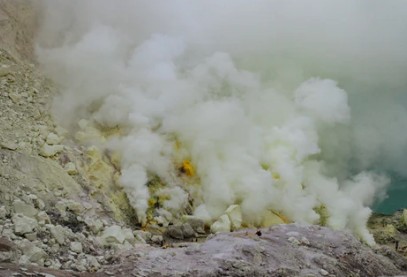
If you have been to a volcano, you will know that there is a pungent smell in the area. But do you know what the reason behind this sharp smell is?
It is because of many compounds of sulfur. However, one of the most notable compounds of sulfur is hydrogen sulfide.
It is responsible for the notorious ‘rotten egg’ smell from swamps, sewers, skunks, intestinal gas, burning feathers or hair, and rotten eggs (obviously).
For the record, this is a very toxic gas. It is lethal to animals and humans.
12. Sulfur is Present in the Human Body

Sulfur is one of the most essential elements for all living beings. However, it is not present in its pure form in the bodies of animals or humans.
Rather, you will find metal sulfides or organosulfur compounds instead of elemental sulfur.
According to research, this is the 8th most abundant chemical element in the human body.
13. The Origin of the Name Sulfur
There is a debate on the correct origin of the term ‘Sulphur’. Some researchers say that it was derived from a Sanskrit word ‘Sulvere’.
On the other end of the spectrum, it is thought to be originated from the Latin word ‘Sulphurium’ or ‘Sulpur’. But we know that the word ‘Sulfur’ came from the word ‘Sulphur’.
14. Use of Sulfur in Modern Day

There is a wide range of applications of sulfur. It is a very significant element when it comes to industrial and commercial use. Here are some of the most noteworthy uses of Sulfur.
- Sulfur is primarily used in producing Sulfuric acid (H2SO4) which is one of the most important chemicals in the world
- It is also used for producing phosphate and sulfate fertilizers
- Also, it is used in gunpowder
- The pure elemental sulfur is used in producing insecticides, matches, fungicides, and pesticides
- It is also sprayed over vegetables and fruits for preserving food
- It is used in winemaking
- Also, it is used in pharmaceuticals
- Additionally, people used sulfer for making furniture
15. Acid Rain And Sulfur

Acid rain is a common occurrence near many industrial areas. Interestingly, sulfur is somewhat responsible for this as well.
Here’s the thing, after fossil fuels like coal or oil burns, it produces Sulfur dioxide. Eventually, sulfur dioxide reacts with air and form sulfuric acid that falls to the ground. Acid rain can have various harmful impacts on the environment.
16. Sulfur and Fumigation
From ancient times, people would use sulfur dioxide for fumigating their homes, this method was even used in the 19th century in the USA.
It was a germ-killing method against diseases like scarlet fever, smallpox, measles, and diphtheria, etc. However, in modern days, we don’t use suffer dioxide to fumigate houses as it is a toxic gas.
17. Use of Sulfur in Ancient Times
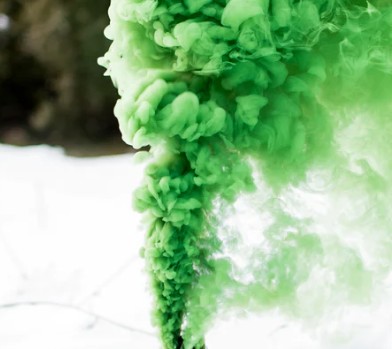
Sulfur is one of the most commonly used elements since ancient times. It had many uses in those times. Such as:
- In China, it was used in traditional Chinese medicine
- Also, they used it for producing black gunpowder
- European alchemists would use sulfur to treat acne, eczema, scabies, etc.
- In ancient Greece, people would use Sulfur to fumigate their houses
- And, sulfur was used to treat various diseases in ancient Egypt according to the ‘Ebers Papyrus’
18. Natural Occurrence of Sulfur
Like any other natural chemical element, sulfur is also created inside giant stars. Sulfur forms by the fusion of 1 nucleus of helium and 1 nucleus of silicon inside those massive stars where the temperature surpasses 2.5 x 10^9 Kelvin.
So, you can say that sulfur was available since the beginning of time.
19. Sulfur in Outer Space

You already know that sulfur is abundantly available in our universe. That means it is also available in outer space.
Interestingly, we have found sulfur on many kinds of meteorites that landed on Earth.
According to research, various ordinary chondrite meteorites contain about 2 percent of sulfur and the carbonaceous meteorites might have about 6.6 percent of sulfur.
Many other planets in the universe also have deposits of sulfur on a greater scale.
20. Jupiter’s Moon Io and Sulfur
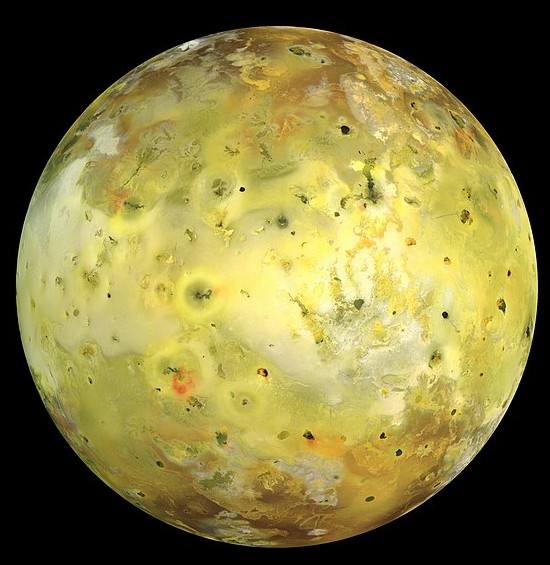
Jupiter is the largest planet in our solar system. It has a lot of moons or satellites. And among them, ‘Io’ or ‘Jupiter I’ is a moon of Jupiter, which has a distinctive yellowish color.
Why is that? Interestingly, this moon of Jupiter has more than 400 active volcanoes. And, this moon has the lowest amount of water of any celestial object in our solar system.
Many volcanoes in Io are responsible for producing sulfur and sulfur dioxide. Some of those volcanoes erupt and send the plumes of sulfur as high as 300 miles or 500 kilometers.
Due to all the deposits of sulfur on the surface of Io, it has a unique yellowish color.
21. Sulfur Production by Country
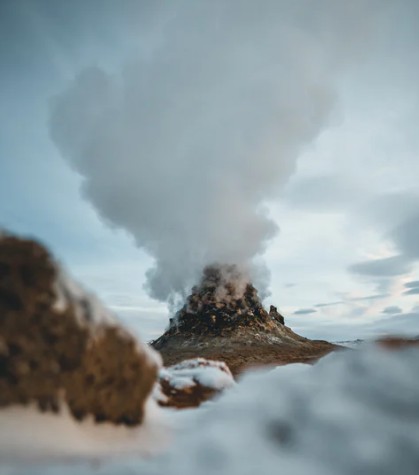
Many countries in the world produce Sulfur on a massive scale.
Here is a list of the top countries based on supplying sulfur around the world:
| Country | Metric Tons ( in thousands ) |
| China | 18,000 |
| USA | 8,600 |
| Russia | 7,300 |
| Saudi Arabia | 7,000 |
| United Arab Emirates | 6,000 |
| Canda | 4,900 |
| kazakhstan | 4,600 |
| India | 3,500 |
| Japan | 3,200 |
| South Korea | 3,100 |
22. Sulfur and Sicily
For over 100 years during the 18th century, Sicily was the number one source of sulfur.
Sicily would export around 2,000 tonnes of sulfur every year to France and other countries in the world. France would use those supplies of sulfur for the production of sulfuric acid.
There are still a few sulfur mines in Sicily. The method they would use to extract sulfur was known as the ‘Sicilian method’. And, it is one of the oldest methods of mining sulfur from underground deposits.
23. Sulfur Crisis of 1840
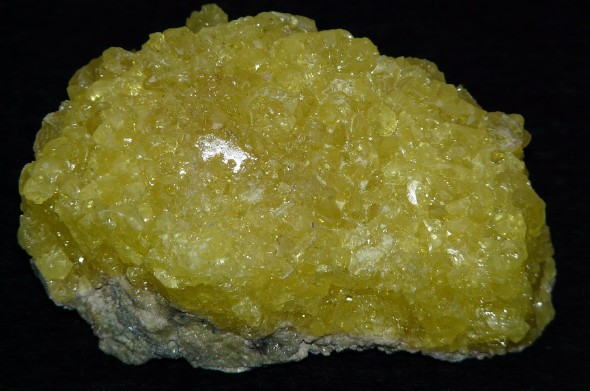
As you know Sicily or the ‘Kingdom of the Two Sicilies’ was the leading exporter of sulfur in 1800-1900 in the world. They would supply sulfur to various countries including Britain and France.
However, during the industrial revolution, the demand for sulfur doubled. The high demand came especially from Britain.
However, ‘King Ferdinand II’, the king of Sicily, handed over a monopoly of the sulfur industry to a firm in France.
And, Britain was not happy with it. As it violated a particular trade agreement between Britain and Sicily that was known as the ‘1816 Trade Agreement’.
This conflict between the UK and the ‘Kingdom of the Two Sicilies’ is known as the Sulfur Crisis of 1840. After negotiations from France, the situation solved between all the parties, eventually.
24. Sulfur Compounds Found in Nature
There are many sulfur compounds found in nature. And some of the most common naturally occurring sulfur compounds are:
- Galena or Lead Sulfide
- Pyrite or Iron Sulfide
- Stibnite or Antimony Sulfide
- Cinnabar or Mercury Sulfide
- Gypsum or Calcium Sulfate
- Barite or Barium Sulfate
- Alunite or Potassium Aluminum Sulfate
25. The Danger of Mining Sulfur

Sulfur is mainly mined from various volcanoes all around the world. However, some sulfur mines still use traditional mining methods. These methods are considered life-threatening to the workers there.
As you know, sulfur dioxide and hydrogen sulfide gases emit through the vents of those volcanoes all the time.
The miners need to work in the presence of these toxic fumes to mine sulfur. Unfortunately, these mines are not changing their method.
Bonus Fact
How long do sulfur burps last

When you have burps with a strong and bad smell that seems like rotten eggs, it’s because of the presence of hydrogen sulfide gas. It can be a simple digestion issue or a more gastrointestinal issue.
The burps can last up to several weeks, if you don’t treat them, and it’s important to note that the sulfur burps can be a sign of a more serious issue and it needs to be checked out.
Closing Thoughts
These were our facts about Sulfur and after reading this, you can see that Sulfur is tied up in your life in many ways.
This element has a lot of usages. However, even though this is abundant in nature, it is not that easy to mine Sulfur.
If you have enjoyed this post, you might also like the post on facts about Aluminum.
